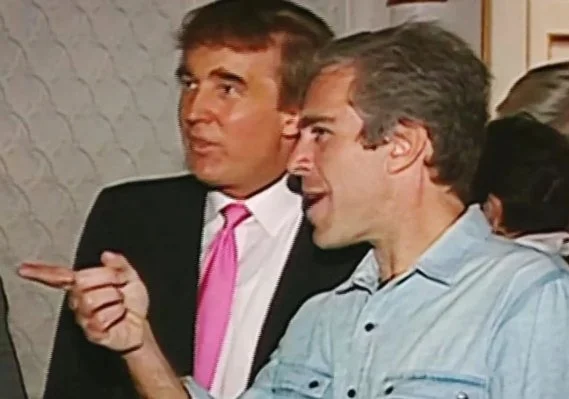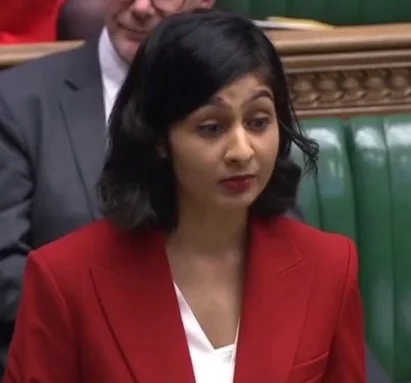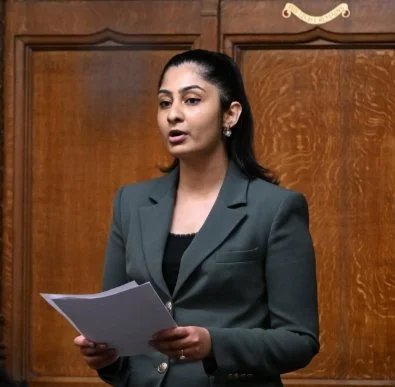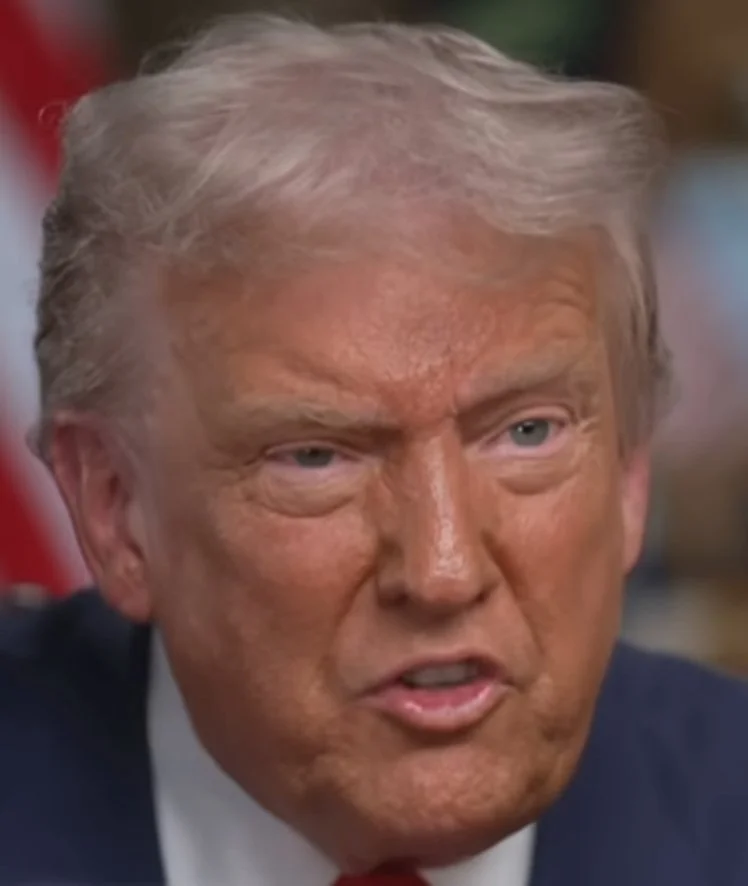AMERICA DESERVES THE TRUTH ABOUT EPSTEIN — AND THE CLOCK IS TICKING
The ongoing refusal to release the Jeffrey Epstein files has evolved from bureaucratic neglect to deliberate obstruction. And now, under the leadership of President Donald Trump’s second administration, it has become a test of the nation's moral backbone and institutional integrity.
Earlier this week, House Republicans blocked an amendment authored by Rep. Ro Khanna (D-Calif.) that would have forced the public release of the Epstein documents. The measure, tied to a broader cryptocurrency bill, would have required Attorney General Pam Bondi to post all Epstein-related files on a public site within 30 days. The vote failed along party lines, with the notable exception of Rep. Ralph Norman (R-S.C.), who broke ranks and supported the measure. "All of a sudden not to have files is a little strange," Norman said.
That statement echoes what millions of Americans are feeling: a growing suspicion that we are being lied to. And that suspicion is not unfounded.
The Facts: A Pattern of Delay, Denial, and Deflection
Let’s begin with the facts. Jeffrey Epstein was arrested in 2019 on charges of sex trafficking minors. He died in jail under highly suspicious circumstances, sparking widespread speculation that he was silenced to protect powerful people. His associate, Ghislaine Maxwell, was later convicted for her role in facilitating Epstein’s crimes and is currently serving a 20-year sentence.
Recently, Maxwell signaled she is willing to testify before Congress, a move that could expose the full scope of Epstein’s network. At the same time, the Department of Justice, now overseen by Trump appointee Pam Bondi, released a memo asserting there is "no evidence" of a client list or a blackmail scheme.
President Trump, who once socialized with Epstein and publicly distanced himself from him after the scandal broke, has alternated between denying the existence of such a list and dismissing the issue entirely. His statements have ranged from flippant ("Epstein never dies") to conspiratorial (blaming Democrats for a "fake list").
Despite Republican campaign promises to release all Epstein files, the House GOP blocked the most direct path to doing so. And now, the same officials claiming to champion truth and transparency are throwing up procedural roadblocks to keep the truth hidden.
Behavioral Patterns That Speak Volumes
President Trump’s handling of the Epstein case follows a familiar pattern of strategic misinformation and power consolidation. This is not unique to Epstein. We’ve seen this playbook before, during investigations into Trump’s finances, his communications with foreign leaders, and the January 6 Capitol attack. But the Epstein case carries a particular weight because it involves potential systemic protection of a vast, exploitative criminal network.
Narrative Flooding and Contradiction Trump’s contradictory statements serve a clear purpose: to exhaust the public and drown out clarity. When the narrative constantly shifts, accountability becomes elusive. The contradictions don’t have to make sense — they just have to create enough noise to suppress demand for a singular truth. This tactic encourages loyalists to pick the version of reality that best suits their biases while discouraging independent inquiry.
Loyalty Enforcement The President’s aggressive defense of AG Pam Bondi — even as she faces criticism from within the MAGA camp — underscores how important she is to maintaining control over the Epstein narrative. Bondi was previously criticized for declining to investigate Epstein during her tenure as Florida Attorney General. Now, as the top law enforcement official in the country, she holds unilateral power over whether these documents are released.
Trump’s defense of Bondi is not just about shielding her — it’s about shielding himself and others. He understands that if Bondi falls or breaks ranks, the entire dam could burst.
Institutional Control and Compartmentalization Trump has weaponized institutions not to uncover the truth, but to suppress it. By placing loyalists in critical positions across DOJ, the FBI, and Congressional committees, he has insulated himself from the fallout of politically damaging investigations.
The recent House Rules Committee vote illustrates this perfectly. Republicans claimed the Epstein amendment was not relevant to the cryptocurrency legislation — a laughable assertion when considered against the magnitude of what’s at stake. This is not about procedural discipline. It’s about information control.
Historical Context: Echoes of the 2008 Non-Prosecution Deal
It’s impossible to view the current obstruction without considering the 2008 plea deal Epstein received, brokered by then-U.S. Attorney Alex Acosta — who would later become Trump’s Secretary of Labor. That deal granted Epstein and unnamed "co-conspirators" immunity from federal charges. This included people who have never been held accountable and remain unnamed.
Maxwell’s team is now using that 2008 deal as part of her Supreme Court appeal, arguing that the federal government violated its own agreement by prosecuting her. It’s a deeply flawed legal argument — but politically, it reminds us that this cover-up has a long and bipartisan tail.
If we don’t expose it now, we risk allowing yet another generation of predators and their protectors to walk free.
A Moment of Truth
The refusal to release the Epstein files should alarm anyone who believes in democratic accountability. We were told the files don’t exist. Then we were told they do, but there's nothing to see. Now we’re being told we can’t see them because it’s the wrong legislative vehicle.
This isn’t about stablecoin regulation. It’s about who gets to tell the truth and who gets to hide it.
Let’s be absolutely clear: if there is nothing incriminating in these documents, they would have been released already. If Ghislaine Maxwell has nothing to offer, her testimony would be welcomed as a distraction. The opposite is happening.
And that tells us everything.
What Comes Next
Democrats have promised to reintroduce the measure to release the Epstein files. Maxwell is reportedly preparing to cut a deal. Pressure is building not only from the left but from fractured elements of the right. MAGA-aligned figures like Megyn Kelly and Dan Bongino have begun expressing frustration over the handling of the Epstein files, and that may signal a deeper fracture ahead.
Expect further obstruction. Expect continued classification. And expect a fight over whether Maxwell’s potential testimony will be public or sealed. Trump’s DOJ will almost certainly push for classified testimony or a closed session, citing national security concerns. But that would only confirm what many already suspect: that what lies in those files could implicate not just individuals, but entire institutions.
The American public deserves better. They deserve transparency. They deserve answers. And above all, they deserve to know who enabled one of the worst sex trafficking operations in modern history.
The clock is ticking.
Speculative Opinion: Strategic Chaos? The Geopolitical Timing That Raises Alarms
The suppression of the Epstein files is unfolding at a time of intense geopolitical instability, and while it may sound far-fetched, the timing of these events raises questions that cannot be dismissed outright.
Just this week, the Trump administration announced a 100% secondary tariff on Russia — a move framed as economic punishment, but one that doesn't take effect for 50 days. This announcement comes barely a week after a phone call between President Trump and Vladimir Putin, in which Putin signaled a 60-day intensification of Russia’s military campaign in Ukraine.
In other words: the tariff begins the day after Putin's window of aggression closes. It reads less like a punishment and more like a permission slip — a delayed response that gives Russia time to act decisively without fear of immediate U.S. economic retaliation.
Meanwhile, tensions with Iran are rapidly escalating, following covert U.S. strikes on Iranian nuclear facilities. Tehran has vowed retaliation. History shows that when Iran strikes back, it often chooses symbolic targets — embassies, government sites, or sensitive infrastructure. In this climate, a strike on domestic U.S. targets — especially digital infrastructure or evidence facilities — is not unthinkable.
If a targeted cyberattack, missile strike, or even a “suspicious explosion” were to occur at a location housing Epstein-related materials, it would not only conveniently erase potential evidence, but also shift the national narrative overnight. Suddenly, questions about Epstein would be buried under patriotic appeals to national unity, retaliation, and emergency security protocols.
This is not a claim of conspiracy — it’s a risk-based assessment. It asks: Who benefits if a critical facility is damaged or destroyed?
Trump would escape mounting pressure from within his own ranks.
The DOJ could cite "loss of records" or "ongoing investigation" to deflect.
Any external aggressor (Iran, Russia, or otherwise) would fracture domestic U.S. attention and stability.
We’ve seen similar moments in history. When a scandal peaks, a crisis often follows — sometimes by chance, sometimes not. What matters here is not intent, but preparedness and pattern. The Epstein scandal is no longer about one man, or even a network. It’s about how much power is willing to hide itself to survive — and what chaos it’s willing to tolerate, or enable, to keep those secrets buried.
The public must remain vigilant. We must insist not only on transparency but also on accountability for those who stand to gain from silencing the truth — whether through delay, deflection, or distraction.
Because the closer the light gets, the darker the shadows will fight to remain.










